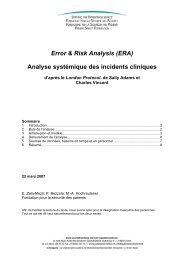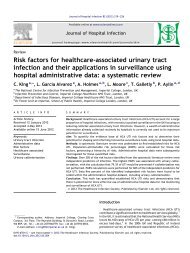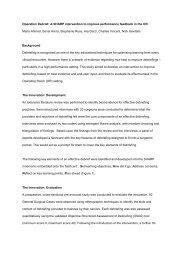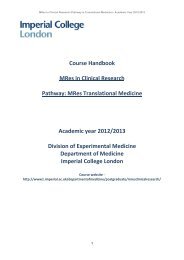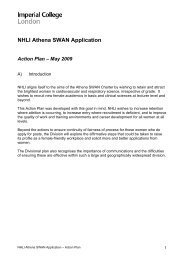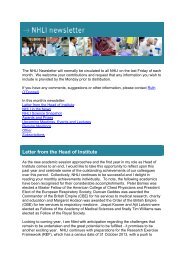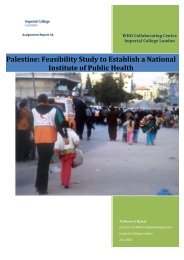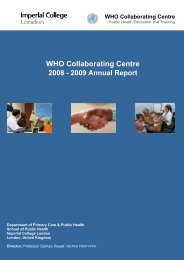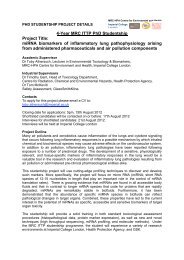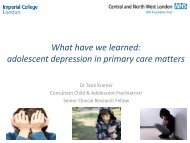QOF Plus Year 1 - Imperial College London
QOF Plus Year 1 - Imperial College London
QOF Plus Year 1 - Imperial College London
Create successful ePaper yourself
Turn your PDF publications into a flip-book with our unique Google optimized e-Paper software.
Degree of perceived professional consensusA Seven Point Plan for the Protection, Promotion and Support of Breastfeeding in CommunityHealth Care Settings was developed in consultation with UK health and medical professionals(UNICEF UK, 2004).A consultation with local stakeholders, including representatives from primary care and publichealth, showed overall consensus for the scientific soundness, importance and feasibility of theseindicators in <strong>QOF</strong>+.Degree of perceived support from patients and carersThe development of the UK Baby Friendly Initiative has been informed by the views of keystakeholders, including mothers (UNICEF UK, 2004).Impact on health inequalitiesThere is a strong inverse association between breastfeeding rates, social class and ethnicity(Bolling et al., 2007). Department of Health Public Service Agreements (PSA) direct organisationsto “reduce health inequalities by 10% as measured by infant mortality and life expectancy atbirth.” This includes a target to “deliver an increase of two percentage points a year inbreastfeeding initiation rates, focusing on women from disadvantaged groups”Health ImpactBreastfeeding provides many short and long-term health advantages for a woman and her baby.Benefits of breastfeeding for the infant include protection against gastrointestinal, urinary,respiratory and middle ear infection (Aniansson et al. 1994; Howie et al. 1990; Pisacane et al.1992) and atopic disease, especially if there is a family history of this (Burr et al. 1989; Oddy et al.1999). There is also increasing evidence of long-term protection against cardiovascular disease(Wilson et al., 1998}. For the woman, breastfeeding can reduce the risk of certain forms ofcancer, including breast cancer (DoH, 1996). Other advantages associated with breastfeedinginclude promotion of attachment between the mother and her infant, and ready availability ofnourishment for the baby (Bick et al., 2002)Workload and training implicationsThere will be a need for staff involved in the care of mothers and babies to be trained in the skillsnecessary to work towards implementing the Baby Friendly Initiative. For details of the proposed training package see section 14.3.4 (p93).49



